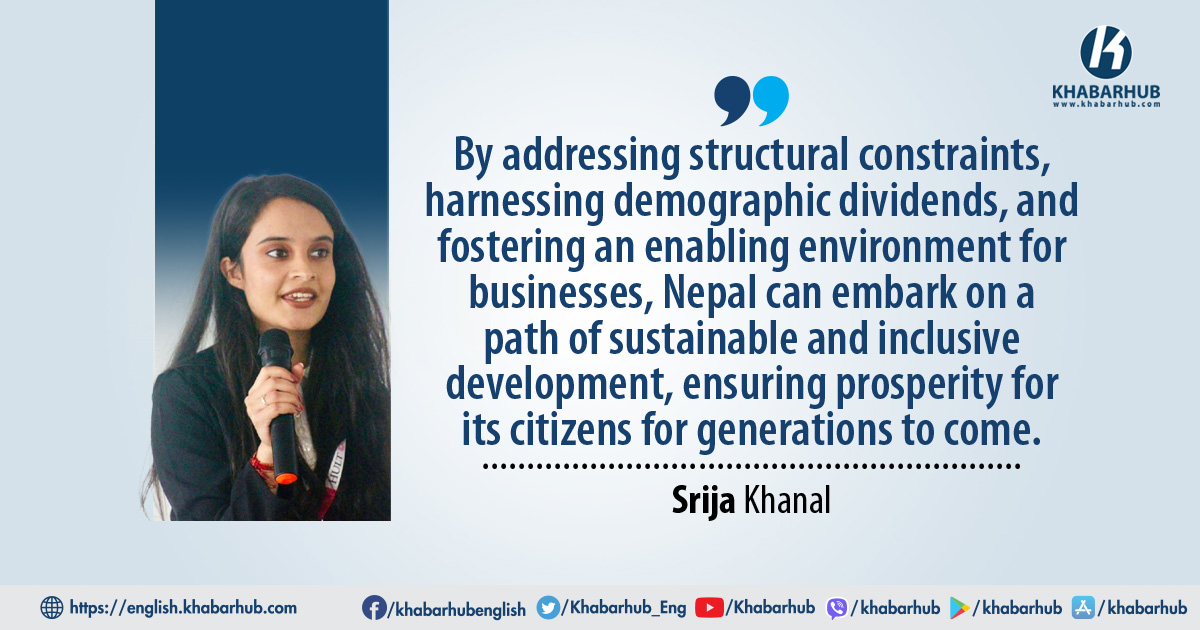As Nepal’s government prepares to unveil its budget, the intricate dance between monetary and fiscal policies takes center stage.
In a rapidly evolving economic landscape, maintaining a delicate equilibrium between stable money supply and economic stability becomes paramount.
Yet, achieving this balance requires not only astute policy decisions but also effective collaboration among stakeholders.
Governor Maha Prasad Adhikari of the Nepal Rastra Bank underscores the centrality of the Central Bank in the budgetary process.
From financial surveys to final consultations with the finance minister, the involvement is comprehensive.
Despite maintaining a lending rate target of 11.5 percent, challenges persist, including issues with loan forgiveness and debt recovery, which cast a shadow over lending momentum.
Madhu Marasini, Secretary at the Ministry of Finance, acknowledges a lack of inter-agency coordination in meeting budget targets. He stresses the importance of translating policy objectives into actionable strategies to bridge the gap between targeted growth rates and actual outcomes.
Expanding on the intricacies of Nepal’s economic landscape, it’s essential to delve deeper into the factors influencing monetary and fiscal policies and their implications for the nation’s development trajectory.
However, the implementation often falls short, necessitating a collaborative effort between the Nepal Rastra Bank, Ministry of Finance, and stakeholders to enhance efficacy.
Despite modest economic progress, Nepal lags behind neighboring nations and global economic leaders.
While the monetary policy shows promise with notable savings and controlled inflation, insufficient capital expenditure hampers economic prospects, highlighting the need for balanced policy interventions.
On the other hand, former Finance Minister Surendra Pandey raises concerns about outbound migration’s impact on Nepal’s remittance-driven economy.
With a significant increase in Nepalis seeking foreign employment, he questions the sustainability of this trend and its implications for remittances.
Historical factors like job scarcity and conflict-induced displacement lose relevance in the current context, necessitating a reevaluation of migration policies.
Speaking at an interaction on “Coherence between Monetary and Fiscal Policy” organized by the Institute for Strategic and Socio-Economic Research (ISSR) in Kathmandu last week, Kamalesh Kumar Agrawal, President of the Nepal Chamber of Commerce, advocates for simplified financial policies to spur business growth.
Criticizing the abrupt withdrawal of concessions post-COVID-19, he emphasizes the private sector’s pivotal role in economic development.
Simplifying financial policies and addressing bureaucratic hurdles in accessing agricultural loans are vital steps toward facilitating business growth.
In analyzing Nepal’s fiscal and monetary policies, it’s evident that a collaborative approach is indispensable.
Bridging the gap between policy formulation and implementation requires concerted efforts from government agencies, financial institutions, and the private sector.
Furthermore, addressing structural challenges such as outbound migration and bureaucratic hurdles is crucial for sustainable economic development.
While remittances play a crucial role in sustaining household incomes and driving consumption, the long-term implications of a shrinking workforce raise concerns about the country’s future growth prospects.
As Nepal charts its economic course, navigating the complexities of inflation, growth, and stability demands a nuanced understanding of interdependencies and a commitment to cohesive policy execution.
Only through proactive collaboration and adaptive policymaking can Nepal realize its economic potential and foster inclusive growth for all its citizens.
Expanding on the intricacies of Nepal’s economic landscape, it’s essential to delve deeper into the factors influencing monetary and fiscal policies and their implications for the nation’s development trajectory.
Governor Adhikari’s emphasis on the Central Bank’s involvement in the budgetary process highlights the critical role of monetary policy in shaping economic outcomes.
By setting lending rates and providing financial guidance to the government, the Central Bank plays a pivotal role in steering the economy towards stability and growth. However, challenges such as loan forgiveness and debt recovery underscore the complexities of implementing monetary policy effectively.
On the fiscal front, Secretary Marasini’s acknowledgment of inter-agency coordination challenges sheds light on the hurdles faced in translating policy objectives into tangible outcomes.
Despite setting ambitious growth targets, the disconnect between planning and execution hampers Nepal’s ability to realize its economic potential fully.
Addressing these challenges requires not only improved coordination among government agencies but also proactive engagement with stakeholders to ensure policy coherence and efficacy.
Moreover, Nepal’s economic performance vis-à-vis its peers underscores the need for targeted interventions to enhance competitiveness and spur growth.
While the country has made strides in controlling inflation and promoting savings, the lack of sufficient capital expenditure poses a significant barrier to economic development.
Balancing fiscal priorities to allocate resources effectively is imperative to address infrastructure gaps and stimulate private sector investment.
By addressing structural constraints, harnessing demographic dividends, and fostering an enabling environment for businesses, Nepal can embark on a path of sustainable and inclusive development, ensuring prosperity for its citizens for generations to come.
The issue of outbound migration further complicates Nepal’s economic landscape, as highlighted by former Finance Minister Pandey.
While remittances play a crucial role in sustaining household incomes and driving consumption, the long-term implications of a shrinking workforce raise concerns about the country’s future growth prospects.
Reversing this trend requires a multifaceted approach, encompassing both economic and social policies to create employment opportunities and incentivize skilled labor to remain in the country.
Similarly, the private sector’s role in driving economic growth cannot be overstated, as emphasized by Chamber of Commerce President Agrawal.
Streamlining financial policies and reducing bureaucratic barriers are essential steps to unleash the potential of businesses and entrepreneurs. By fostering a conducive business environment, Nepal can attract investment, create jobs, and diversify its economy beyond traditional sectors.
Nepal’s fiscal and monetary policies reveals a complex interplay of factors shaping the country’s economic trajectory.
From the Central Bank’s role in setting monetary policy to the government’s efforts in fiscal planning, coordination and collaboration are essential to overcome challenges and seize opportunities for growth.
By addressing structural constraints, harnessing demographic dividends, and fostering an enabling environment for businesses, Nepal can embark on a path of sustainable and inclusive development, ensuring prosperity for its citizens for generations to come.









Comment